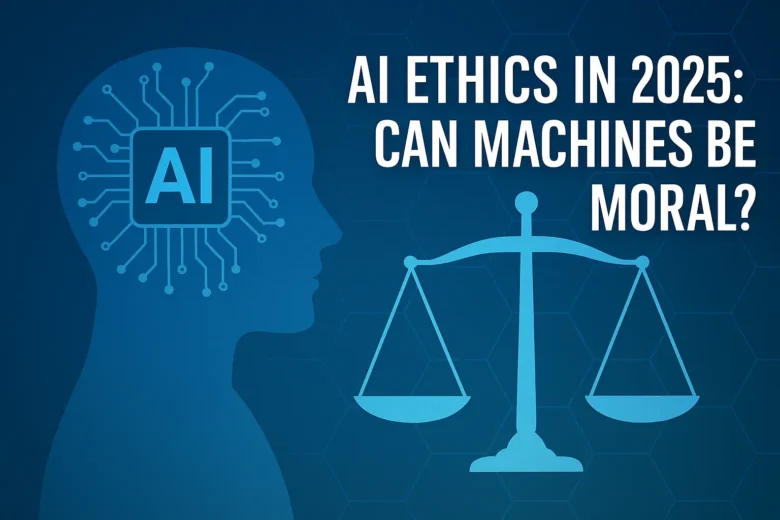Introduction
In 2025, Artificial Intelligence (AI) is everywhere—from classrooms to businesses. Students studying AI ethics class 9 and class 10 are already exploring questions about technology’s role in society. But the bigger debate is: Can machines be moral?
Understanding what it is and its role in shaping future decisions is more important than ever. Whether you’re reading artificial intelligence class 9 notes or asking what is AI ethics class 10th, this topic affects both education and real-world innovation.
What is AI Ethics?
So, what do you mean by artificial intelligence ethics? Simply put, AI ethics is about the moral principles that guide how we design and use AI. From fairness to privacy, it ensures machines act in ways that are aligned with human values.
This is often discussed in AI ethics class 9 and class 10 curriculums, where students analyze issues like bias, transparency, and accountability.
Introduction to AI Class 9 Notes: The Basics of Ethics
When you read introduction to class 9 notes, you’ll find that ethics is a central theme. It teaches students to think critically about AI systems. For example:
- What is AI class 9? AI refers to machines that mimic human intelligence.
- Why ethics? Because machines can make decisions that affect lives.
In many schools, class 9 AI notes and class 9 AI questions and answers encourage students to debate whether AI can ever truly understand morality.
AI Ethics Class 10: Deeper Dive into Morality
By the time students reach artificial intelligence ethics class 10, they deal with advanced questions like:
- What is AI ethics class 10? It explores fairness, bias, and justice in AI systems.
- What is AI bias class 10th? Bias occurs when AI decisions unfairly favor or discriminate, often because of flawed training data.
This level of study prepares students to think about the societal impact of AI—an important step in making sure future technology is both smart and fair.
The Challenge of AI Bias in 2025
One of the biggest topics in both AI class 9 notes and class 10 is bias. What is AI bias class 10? It’s when AI makes unfair predictions, like misidentifying people of different backgrounds.
In 2025, companies and governments are trying to fix these issues by applying stricter ethical frameworks. Students asking what is AI ethics class 9 or class 10 will realize that bias is one of the toughest ethical challenges for today.
Can Machines Really Be Moral?
Even with advances in AI technology, the question remains: Can machines truly understand human morality?
- AI examples in classrooms show that students studying introduction to AI class 9 questions and answers often debate whether AI can learn empathy or compassion.
- Many experts argue that while AI can follow rules, true morality requires human judgment.
This is why AI ethics class 9 and class 10 emphasize critical thinking, ensuring students learn to guide technology responsibly.
The Future of AI Ethics in Education and Society
Looking forward, artificial intelligence in education will keep expanding. Topics like what is AI ethics, bias class 10, and artificial intelligence in class 9 notes will prepare students to become responsible innovators.
By 2030, we may not only ask “Can machines be moral?” but also “How should we teach morality to machines?”
FAQ Section
Q1: What is AI ethics class 9?
In class 9 introduces students to fairness, bias, and decision-making in artificial intelligence.
Q2: What is AI ethics class 10?
In class 10 covers deeper issues like accountability, transparency, and justice in artificial intelligence.
Q3: What is AI bias class 10th?
AI bias refers to unfair outcomes caused by flawed or imbalanced training data used in AI systems.
Q4: What do you mean by artificial intelligence ethics?
Artificial intelligence ethics is the study of moral principles that guide how artificial intelligence should behave in society.
Q5: What is AI class 9 and why is it important?
AI class 9 introduces students to the basics of AI, including its applications and ethical concerns, preparing them for advanced topics in class 10.


1 Comment